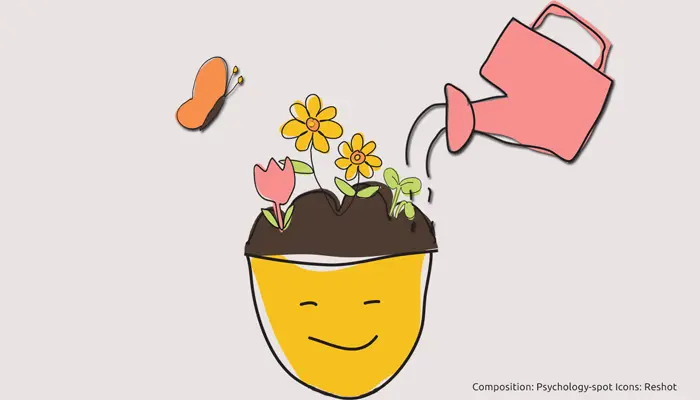
We all make mistakes. Throughout our lives we make many mistakes, some are small and inconsequential, others are really big and we carry their repercussions for a long time. The good news is that we can learn from past mistakes. We have the ability to take note of what we did wrong in order to act more cautiously in the future and not make mistakes again. The bad news is that we don’t always get it right, so it’s easy to trip over the same stone.
Past mistakes can decrease our self-control
Conventional wisdom suggests that remembering our successes or failures can help us make better decisions in the present. But what if it wasn’t like that? Or at least not always?
A group of psychologists at Boston College raised these questions and, to answer them, they launched a very interesting experiment. They recruited a group of people who divided them into four subgroups:
1. They had to remember two situations in their life in which they maintained self-control and achieved their goals.
2. They had to recall ten situations in which they maintained self-control.
3. They had to think of two situations in their life in which they made the wrong decision.
4. They had to remember ten mistakes they made throughout their lives.
Participants were then given a sum of money, and the researchers asked them how much they would be willing to spend to buy a product they wanted.
Interestingly, the only group that stayed within the budget was the one that remembered the moments of success. The rest of the people showed greater impulsiveness and chose products that they could not afford.
This research shows that taking a leap into the past can have a huge influence on our current decisions and behaviors. Old memories can become a “self-control technique” that helps us make good decisions or, on the contrary, they can lead us to make mistakes. Remembering mistakes has substantially different cognitive and affective consequences than remembering successes.
How to learn from the mistakes of the past?
Remembering the past is not always positive, sometimes it can negatively influence our level of self-control and push us to make rash decisions, which could explain why we tend to make the same mistakes over and over again.
These psychologists concluded that “remembering failures induces self-indulgence regardless of task difficulty.” They believe that remembering past mistakes ends up being painful and sad, which can affect our ability to control ourselves and lead us to be excessively self-indulgent.
Of course, it all depends on how we conceive errors. Having a negative view of mistakes, associating them with failure or not stopping punishing yourself for a mistake will cause its memory to end up affecting the image you have of yourself, making you demoralized and more likely to act impulsively.
Instead, taking mistakes as learning opportunities could mitigate their negative emotional impact.
Therefore, if we want to learn from the mistakes of the past, the first step is to change our conception of them, assuming them as necessary and unavoidable learning steps in life that allow us to gain experience and wisdom. A mistake does not have to define us as people nor is it an indicator of our worth. What really counts is what we do next to correct that mistake or avoid making it again.
The second step is to focus on the lesson learned, rather than the mistake we made. That change of perspective empowers us, instead of affecting our self-esteem. For example, if in the past we hurt someone with our words in the middle of a heated argument, rather than focus on the details of the event, it is useful to focus on the lesson we learned, such as: not to argue when we are angry. It is a more constructive perspective that will allow us to remain calm and respond more assertively.
In short, to learn from past mistakes we need to process them, assume them and extract the lesson, without making value judgments that lead us to put limiting labels on ourselves that will later be activated when we remember the situation and, far from helping us, can push us to commit the same mistake.
Therefore, if we have to make an important decision, we can look at the mistakes of the past, but we must make sure that we do so in a constructive way. The key is to take note of the lessons learned to chart the way forward and then focus on the future. Ruminating our bad decisions will not lead us to a good port. It is better to look ahead and move forward.
Source:
Nikolova, H. et. Al. (2016) Haunts or helps from the past: Understanding the effect of recall on current self-control. Journal of Consumer Psychology; 26(2): 245-256.




Tina says
I love this article; it speaks volumes about how to use your bad choices to better your life. I have had many bad things happen in my life and very fortunate to learn that there are lessons from them; it doesn’t always come to me right away, but time and awareness will bring the lessons to the forefront. And sometimes bad things happens and it’s just a crappy thing thst happened.
I wish my boyfriend would see I’ve made mistakes in the past, but have learned from them, and moved on. But he thinks I’m still making the same bad choices and theres some kind of repeating “pattern” of bad past experiences that I am doing now. I can see a similar theme, but at the age of 56 it is not perceived the same as when I was 20; I can see things from a different more adult view nowadays; the issues I’m facing now are not the same thing as the past ones and the choices made are in response to the event that happened.